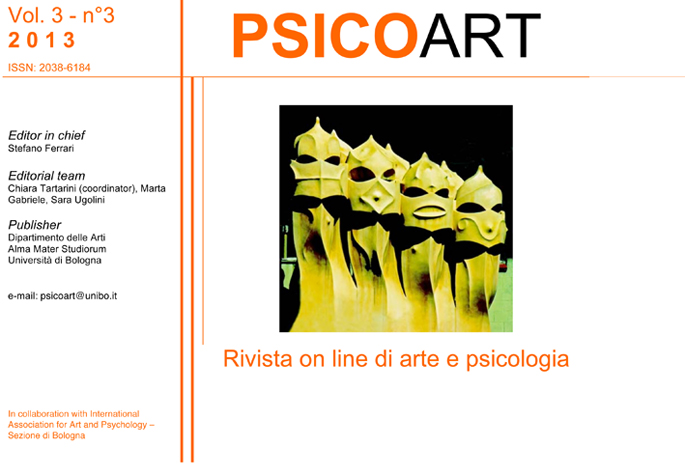Matters of chemistry. Primo Levi, Freud and the temporary repair
DOI:
https://doi.org/10.6092/issn.2038-6184/3683Keywords:
Primo Levi, chemistry, writing, experience, sorrow.Abstract
By a Primo Levi’s analogy between the writer’s trade and the chemist’s one, his first and «unique» profession, and a Freud’s analogy between the chemist’s trade and the psychoanalyst’s one, the text shows some aspects of the therapeutic potential of writing. Levi pointed out some of his books as replacements for «Freud’s couch»: the writer can indeed rework his orginal material, the experience, in a new and healthier balance; in the same way the chemist can develop a new synthesis for a compound or the psychoanalyst recreate a new psychic order in his patient; in all cases, however, the single elements prove to be hard to manage, unpredicatable, and the outcomes hard to foresee.References
Italo Calvino, Prefazione 1964 a Il sentiero dei nidi di ragno in Italo Calvino, Romanzi e racconti vol. I, Mondadori, Milano 2005.
Sigmund Freud, Vie delle terapia psicoanalitica, in Sigmund Freud, Opere. Vol. 9: L'io e l'es e altri scritti, a cura di C. L. Musatti, Bollati Boringhieri, Torino 1986.
Robert S. C. Gordon, Primo Levi: le virtù dell’uomo normale, Carrocci, Roma 2004.
Primo Levi, Ex chimico, in Primo Levi, L’altrui mestiere, Einaudi, Torino 2006.
Primo Levi, Il teschio e l’orchidea, in Primo Levi L’altrui mestiere, Einaudi, Torino 2006.
Primo Levi, Il sistema periodico, Einaudi, Torino 2005.
Primo Levi, I sommersi e i salvati, Einaudi, Torino 2007.
Primo Levi, Perché si scrive?, in Primo Levi, L’altrui mestiere, Einaudi, Torino 2006.
Primo Levi, Se questo è un uomo, Einaudi, Torino 2005.
Primo Levi, Tutti i racconti, Einaudi, Torino 2005.
Luigi Meneghello, Jura. Ricerche sulla natura delle forme scritte, Rizzoli, Milano 2007.
Downloads
Published
How to Cite
Issue
Section
License
Copyright (c) 2013 Luca Cevenini
Copyrights and publishing rights of all the texts on this journal belong to the respective authors without restrictions.
This journal is licensed under a Creative Commons Attribution 4.0 International License (full legal code).
See also our Open Access Policy.





